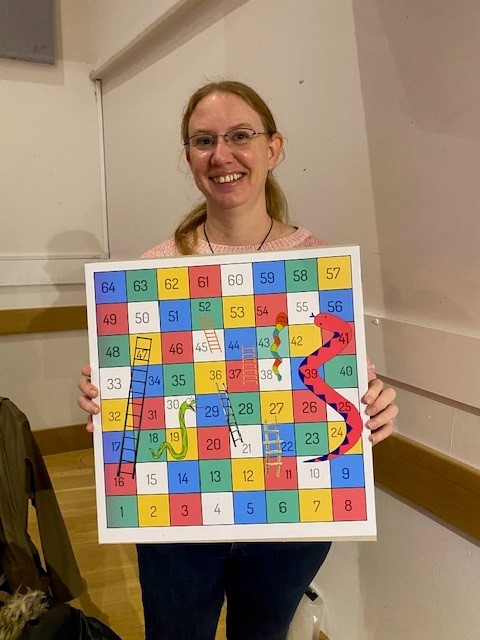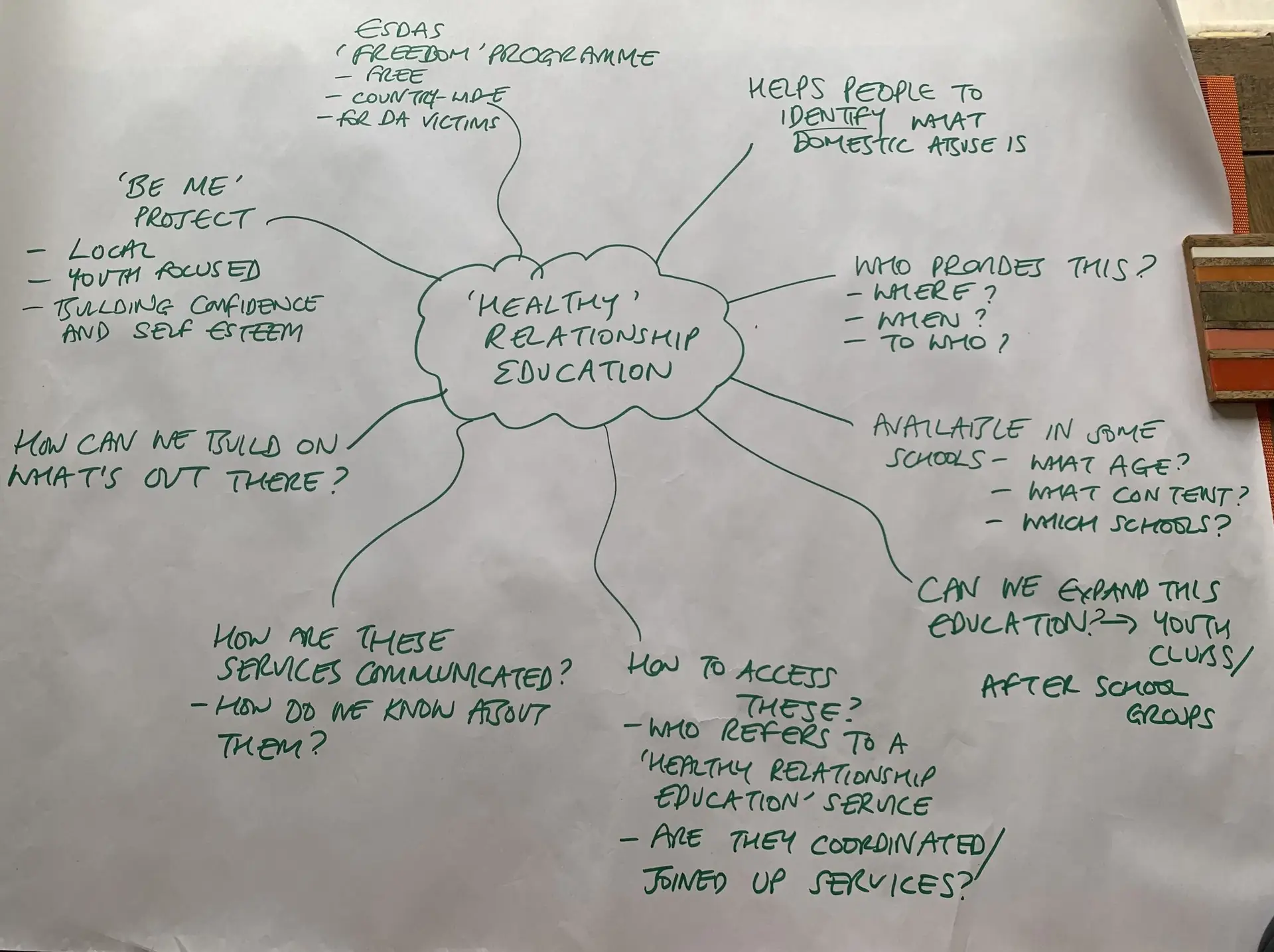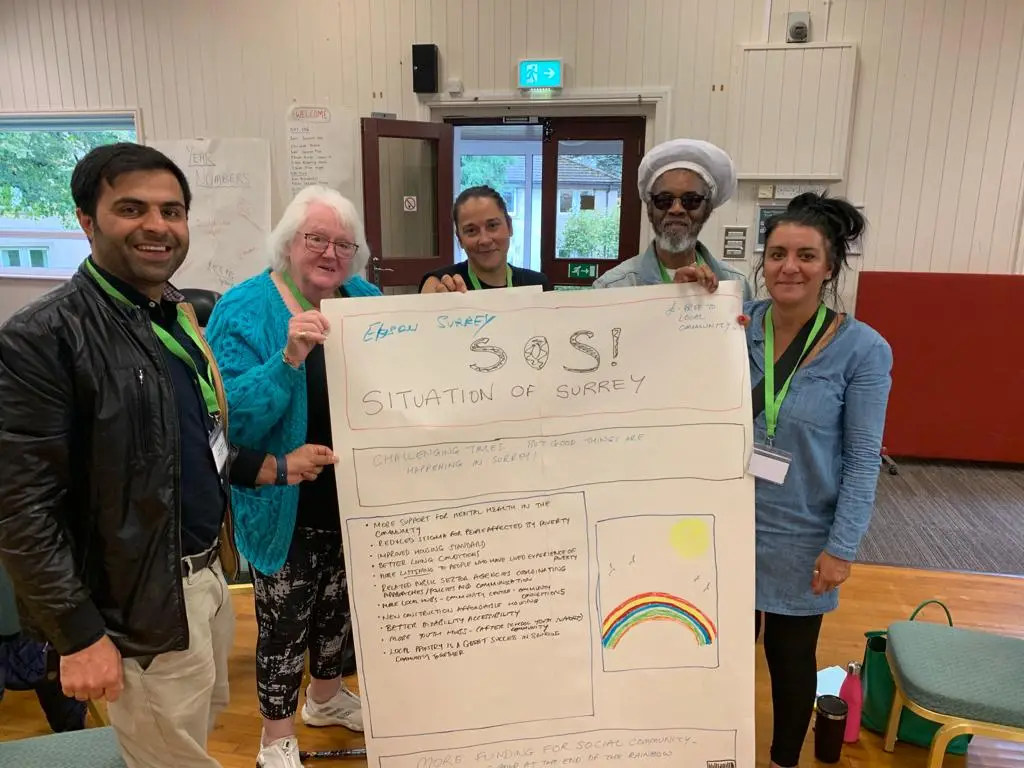Alison, one of our community commissioners, shares her thoughts on the importance of mental health support for anyone experiencing poverty.
I moved to Epsom in 2017 from Zimbabwe where I was born. I lived there for 31 years, got married and had my two amazing children. Unfortunately, my marriage broke down and so did I, I lost sight of who I was. At that time, me and my children were given the opportunity to move to the UK by some family friends who were willing to put us up and my parents supported us financially until I got a job and we settled down.
Fast forward to just after lockdown when I am working through my mental anguish and rediscovering who I am again. Suddenly the cost of living crisis hits, and I went from being able to have a bit of money to save each month after bills and essentials were paid to not having enough for food. I found the Epsom Pantry and was lucky enough to become a member, this gave me some kind of control and lessened the stress. It is also how I discovered that according to UK statistics I was considered to be living in poverty. I found this very confusing as coming from Zimbabwe I have a different view of what poverty means.
Since joining the Poverty Truth Commission (PTC) I have come to learn that there are many facets to poverty and it’s all different according to the environment you’re in. I struggled to accept the situation that once again I was living in poverty. The subsequent shame and guilt of having done that to my children put me into a spiral mentally. I am now getting support through the help of the PTC, but what about the people who don’t have that?
Poverty can be both a cause and a consequence of poor mental health. The UK has high rates of poor mental health, surely that should be enough for organisations to work together and come up with a solution?
We need to be getting information and solutions out there early on to help people who are struggling with poor mental health. If support is given early on, it takes less time to fix and less resources. There is a huge demand and need for mental health services. There needs to be help available for longer and given earlier. This will surely in turn have a positive effect on poverty. People in good mental health feel good about themselves and are more likely to want to better themselves in every aspects of their lives.
For me, I hope I can grow in confidence and self belief so I can make my business running art teaching workshops grow. This will then help to get me out of the ‘poverty hole’ and in a better place mentally and financially. I will in turn hold my hand out to help other people get out of poverty as I believe ‘a community that helps each other is a community that leaves poverty behind.’




